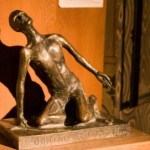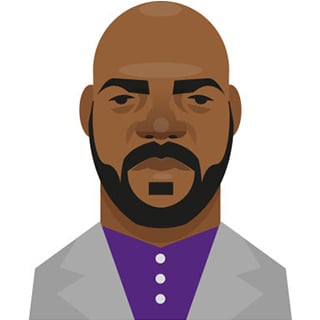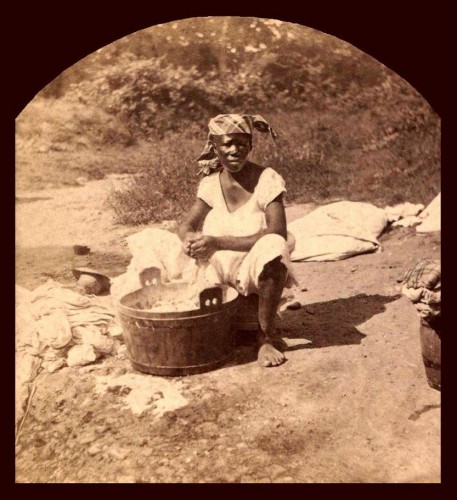 It’s a small story, and briefly told in Luke’s gospel: Some elders among the Jewish community came to Jesus on behalf of a Roman centurion, whose slave, whom he valued, lay close to death. Would Jesus heal the slave, they asked, and added, even though the owner isn’t one of us, he’s a good man, he built our synagogue. And Jesus is on his way to the centurion’s home when he receives another message: don’t come to my house, I am not worthy, for I order people about and control what they do for the sake of Rome. Just heal the slave without honoring me. And Jesus marvels at this man, and tells the crowd he has never found such faith as this in any people.
It’s a small story, and briefly told in Luke’s gospel: Some elders among the Jewish community came to Jesus on behalf of a Roman centurion, whose slave, whom he valued, lay close to death. Would Jesus heal the slave, they asked, and added, even though the owner isn’t one of us, he’s a good man, he built our synagogue. And Jesus is on his way to the centurion’s home when he receives another message: don’t come to my house, I am not worthy, for I order people about and control what they do for the sake of Rome. Just heal the slave without honoring me. And Jesus marvels at this man, and tells the crowd he has never found such faith as this in any people.
A generous, good-hearted man who uses his authority well – how is he unworthy?
Some insight into what he felt about himself came to me in the movie 42, the story of Jackie Robinson and Branch Rickey breaking the race barrier in baseball in 1947. Rickey is the team executive for the Brooklyn Dodgers. He is a man under authority, and he orders men around and they obey him. He is also a man who, for twenty years, has carried around inside him a memory of the intense pain that ripped apart a black man who played on an early team he coached, when a hotel where the team was staying for an away game refused him a room because of his color. Rickey got the hotel to back down, but the hurt he saw in that man stayed with him as a lasting heartache, until he finally came to see that he had not begun to address the evil from which that incident had sprung, and that he could choose to use his authority to integrate baseball.
Rickey had come to understand enough about racism to know that Robinson needed to be on the Dodgers because of his athleticism, not because Rickey wanted to integrate the team, a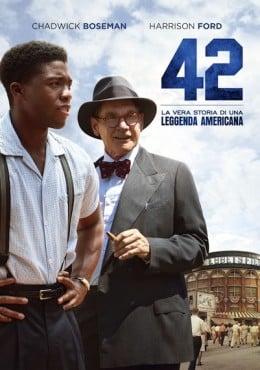 nd the he, Rickey, needed to stay out of the limelight and provide Robinson all the help he could, so that Robinson, No 42, could survive the hatred that would come to him. Rickey is unwavering. And when Robinson, enduring abuse after abuse, asks him why, Rickey answers that he had not done enough long ago.
nd the he, Rickey, needed to stay out of the limelight and provide Robinson all the help he could, so that Robinson, No 42, could survive the hatred that would come to him. Rickey is unwavering. And when Robinson, enduring abuse after abuse, asks him why, Rickey answers that he had not done enough long ago.
The theme of redemption recurs in the film. The team lawyer tells Rickey that he is breaking a code, an unwritten law, and that people forgive you when you break laws, even sometimes admire you for it, but when you break codes they seek to destroy you. And Rickey himself confronts the manager of the Phillies by asking him if he thinks, when he dies, that God will be satisfied that he cancelled a game over Robinson’s race. The guy backs down, the game goes on.
And somehow, in the 1947 season, Robinson received the power to heal from taunts and gibes, from a baseball hit in the head and letters so ugly the FBI was called in to handle the threats in them.  Robinson prevailed as a ball player, becoming Rookie of the Year. And Rickey went on to hire more non-white players, including Afro-Hispanic superstar Roberto Clemente.
Robinson prevailed as a ball player, becoming Rookie of the Year. And Rickey went on to hire more non-white players, including Afro-Hispanic superstar Roberto Clemente.
In Luke’s story the centurion tells Jesus it is the slave’s worthiness that should be honored by the healing. Not the centurion’s. That is the thing the centurion knows will be wrong if Jesus comes to his house to honor what the Jewish elders have liked in the centurion. The slave has no authority at all. None. Yet the healing, the centurion says, needs to be because the slave’s life has value, not because his owner’s life has value.
Branch Rickey came to that discernment in a time when segregation was legal in America, when public restrooms had signs for White and Colored, when black people’s skin was considered to be contaminating, and when their abilities were considered to be inferior.
Such deep prejudice has not left us in this country, as we see and hear and fail to notice nearly every day. Rickey says, in one scene, we just won a war against fascism in Europe, we need to win one against racism here at home. It still astonishes, how often we fail to see the log in our own cultural eye – and that Branch Rickey did see it, and saw that he could do something about it.
Our habit of honoring people for their power, of ingratiating ourselves to their powerfulness, and of heaping contempt upon the powerless as unworthy, unworthy of their food stamps or their low-income housing, their free health care or their college admissions, persists without much question.
The heaping of abuse upon the powerless whom we consider unworthy continues to plague us. It is the kind of illness that is only cured by people like Branch Rickey, who dare to stand up to it, and to say No.
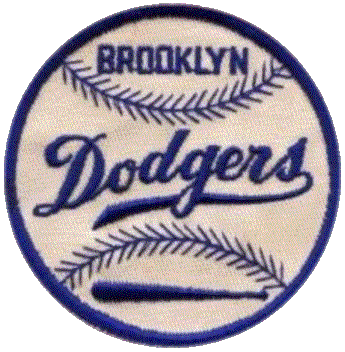 Jesus, who praised the centurion’s declaration and who healed the slave for his own sake, was surely cheering for Branch Rickey and Robinson when they signed that contract in 1946. On our crosses, Jesus could well wear a Brooklyn Dodgers’ cap and a 42 jersey. .
Jesus, who praised the centurion’s declaration and who healed the slave for his own sake, was surely cheering for Branch Rickey and Robinson when they signed that contract in 1946. On our crosses, Jesus could well wear a Brooklyn Dodgers’ cap and a 42 jersey. .
One of Robinson’s enduring quotes is: A life is not important, except in the impact it has on other lives.
_____________________________________________________
Illustrations:
1. Our Washerwoman. A photograph of a slave, taken in Louisiana, 1860 – 1899, from the collection of Okinawa Sabe. Vanderbilt Divinity School Library, Art in the Christian Tradition.
2. Poster for film, 42, showing Jackie Robinson and Branch Rickey (Chadwick Boseman and Harrison Ford).
3. Jackie Robinson, 1947. Google Images.
4. Time Magazine cover image, 1947.
5. 1947 Brooklyn Dodgers patch. Google Images.




